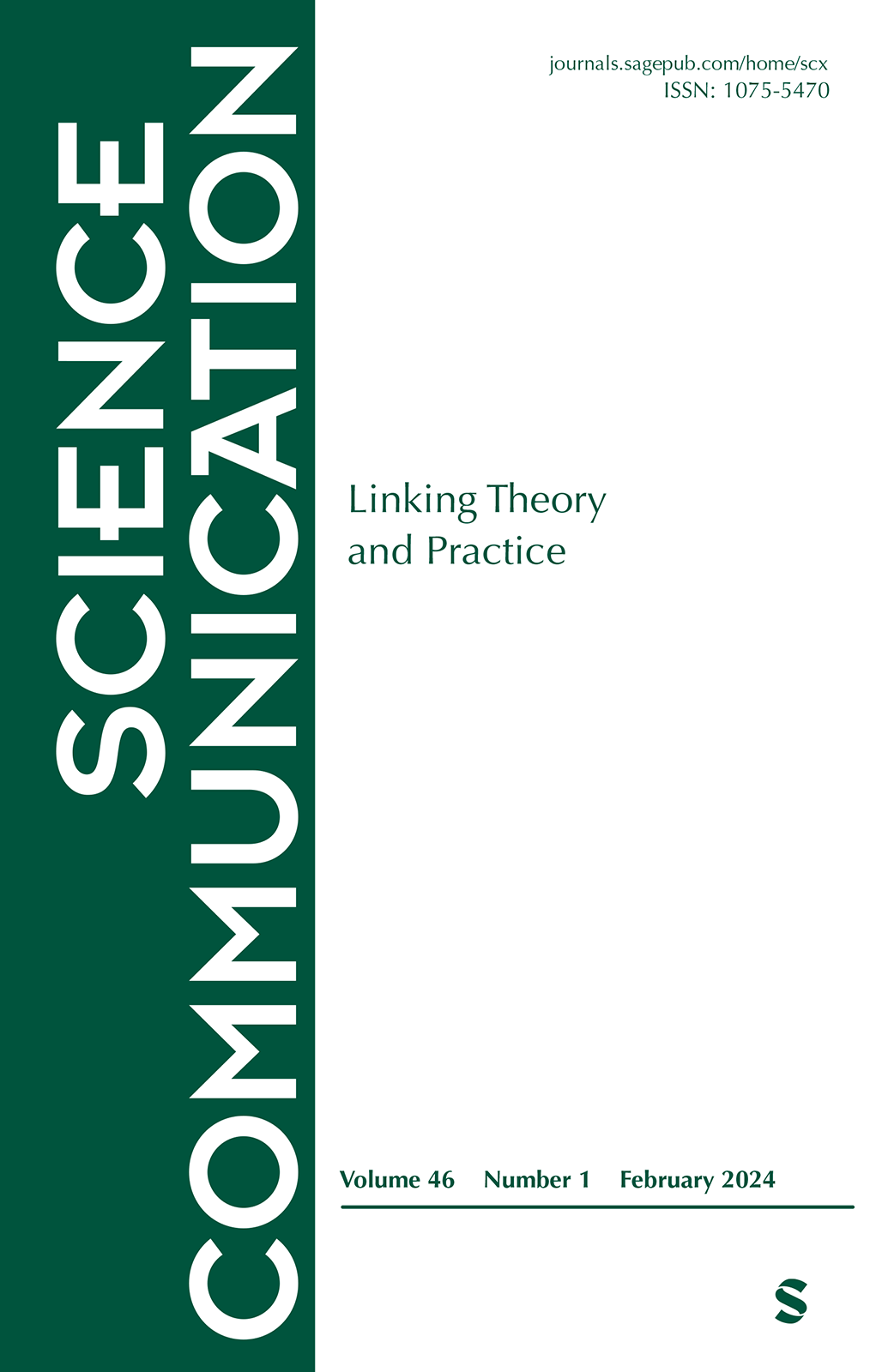谁怀疑科学创新?研究人工智能、纳米技术和人类基因编辑态度的世界观预测因素
IF 4.1
1区 文学
Q1 COMMUNICATION
引用次数: 0
摘要
这项工作考察了对纳米技术、人类基因编辑(HGE)和人工智能的态度的世界观预测因素。通过同时评估两个荷兰样本(总N = 614)中各种世界观变量的相对预测价值,我们获得了灵性作为跨领域怀疑主义关键预测因素的证据。宗教性始终预测只有HGE怀疑论。对科学较低的信心促成了这些关系。对篡改自然的厌恶预示着各个领域的怀疑。这些结果说明了宗教信仰和灵性对科学创新态度的重要性,并强调需要详细考虑塑造这些态度的世界观。本文章由计算机程序翻译,如有差异,请以英文原文为准。
Who Is Skeptical About Scientific Innovation? Examining Worldview Predictors of Artificial Intelligence, Nanotechnology, and Human Gene Editing Attitudes
This work examines worldview predictors of attitudes toward nanotechnology, human gene editing (HGE), and artificial intelligence. By simultaneously assessing the relative predictive value of various worldview variables in two Dutch samples (total N = 614), we obtained evidence for spirituality as a key predictor of skepticism across domains. Religiosity consistently predicted HGE skepticism only. Lower faith in science contributed to these relationships. Aversion to tampering with nature predicted skepticism across domains. These results speak to the importance of religiosity and spirituality for scientific innovation attitudes and emphasize the need for a detailed consideration of worldviews that shape these attitudes.
求助全文
通过发布文献求助,成功后即可免费获取论文全文。
去求助
来源期刊

Science Communication
COMMUNICATION-
CiteScore
13.50
自引率
4.40%
发文量
19
期刊介绍:
Science Communication is a prestigious journal that focuses on communication research. It is recognized globally for publishing top-quality manuscripts that demonstrate excellent theoretical frameworks and robust methodology. Our journal embraces a broad definition of science, encompassing not only the natural and physical sciences but also social science, technology, environment, engineering, and health. Regardless of the scientific area, effective communication is always the focal point of our investigations.
Apart from theoretical and methodological rigor, we place great emphasis on the practical implications of scientific communication. Therefore, we expect all submitted manuscripts to address the real-world applications and significance of their research, alongside theoretical considerations.
In summary, Science Communication is an internationally renowned journal dedicated to bridging the gap between science and society. By promoting effective communication in various scientific domains, we strive to engage readers with intriguing research that has tangible implications for the world around us.
 求助内容:
求助内容: 应助结果提醒方式:
应助结果提醒方式:


